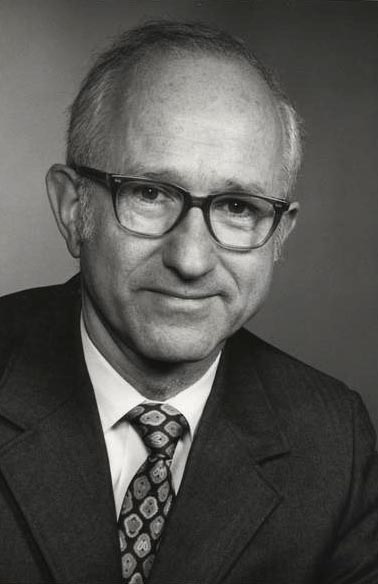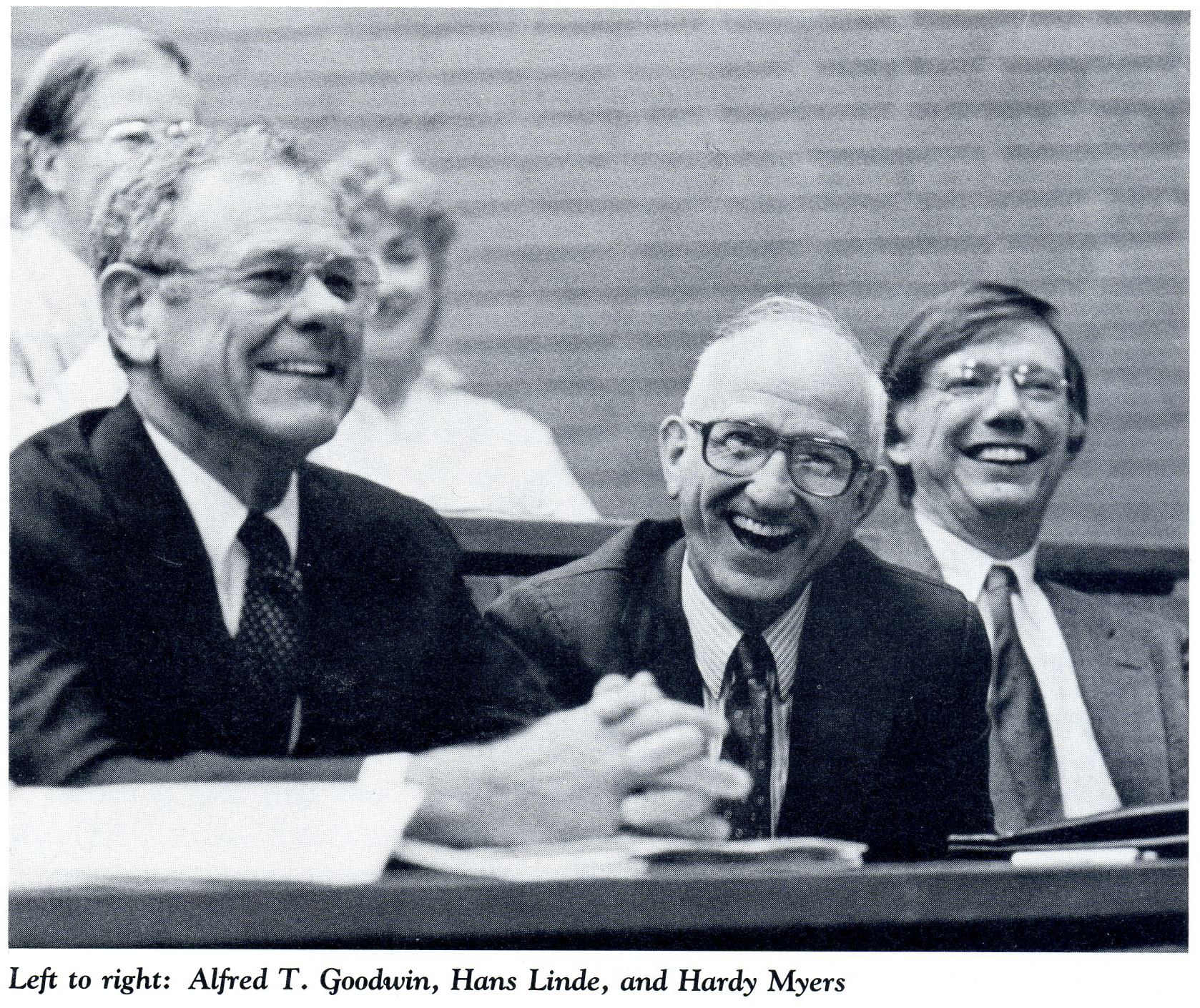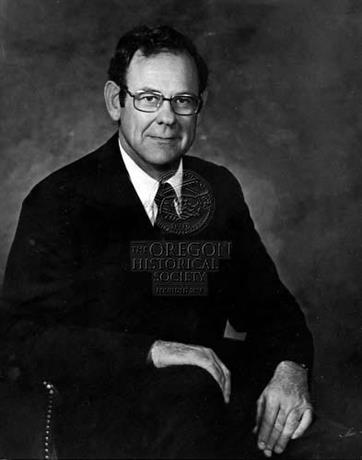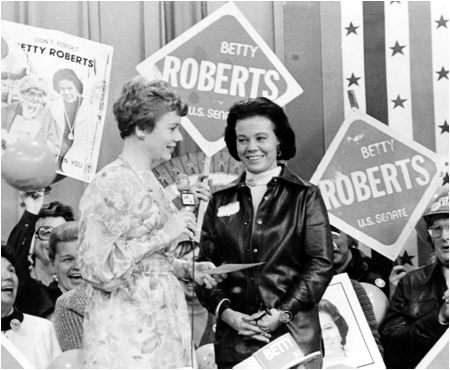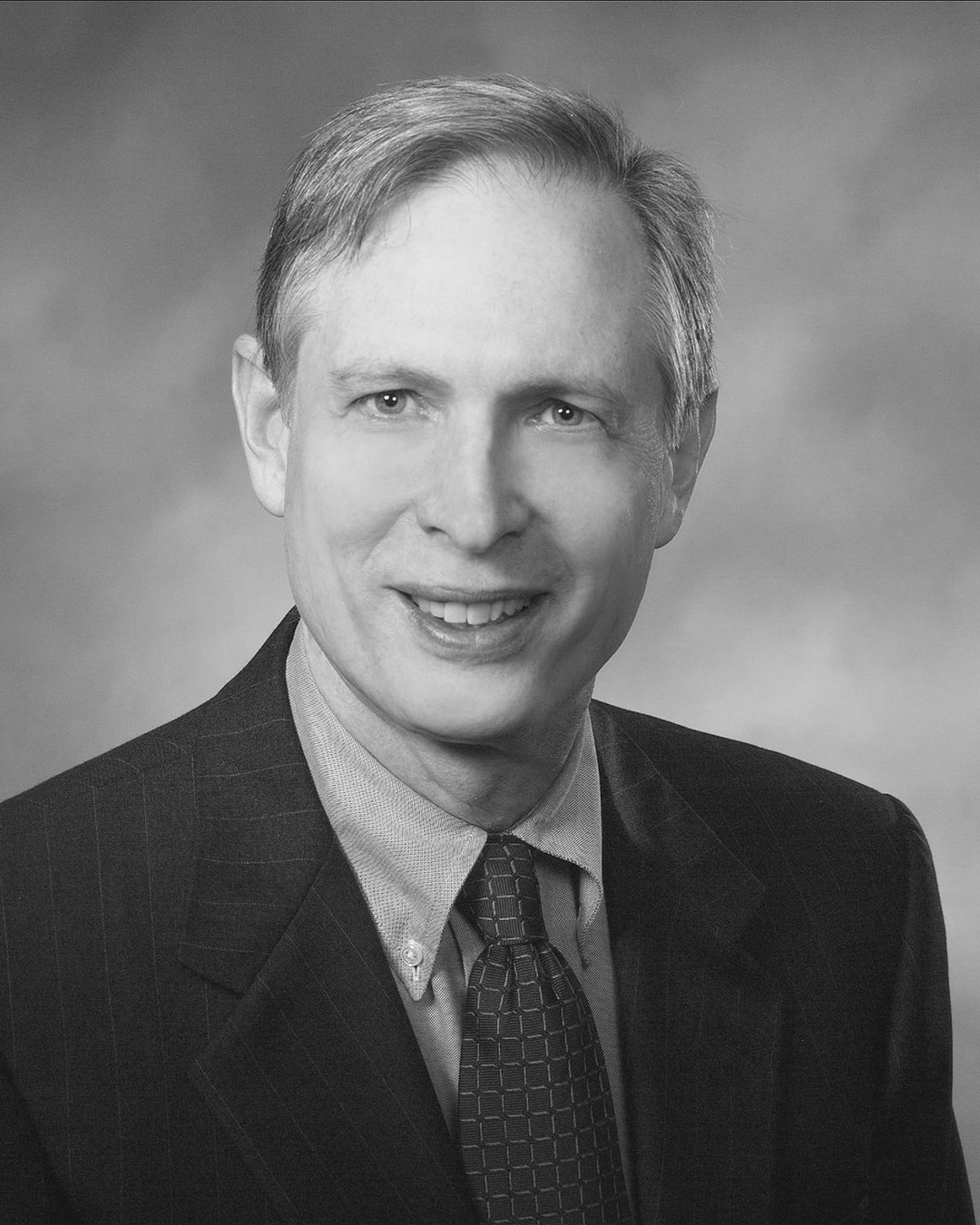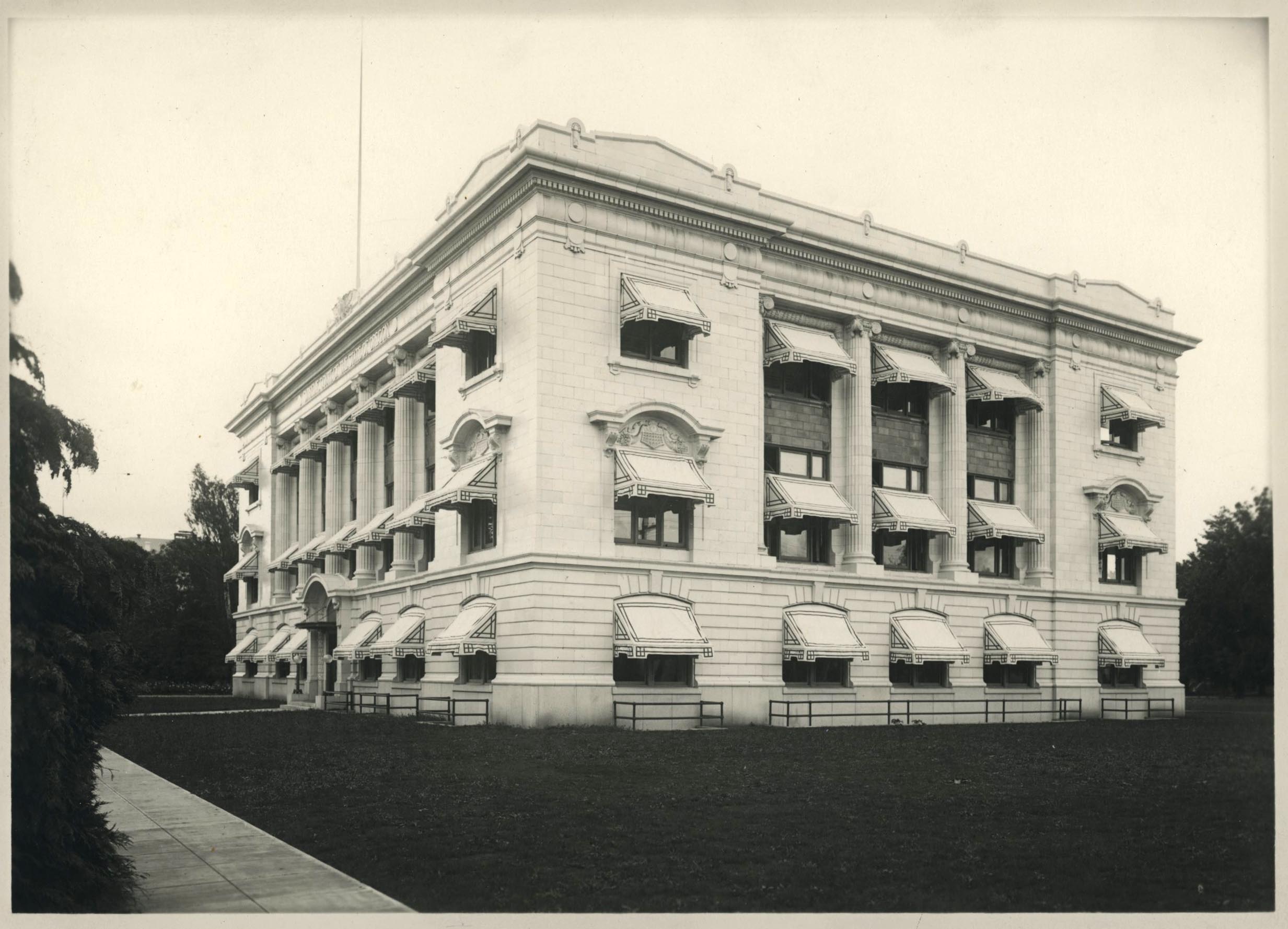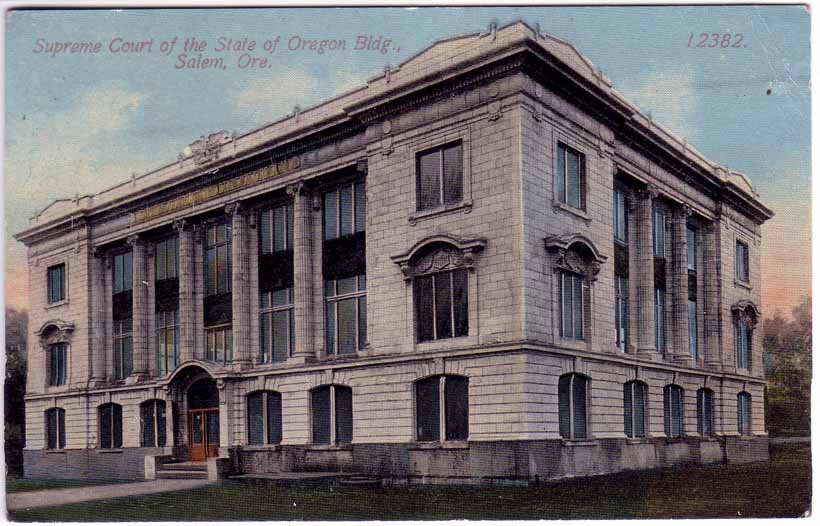Oregon jurist Hans Linde was one of the premier state supreme court justices of the twentieth century. As a justice and a law professor, he advanced the theory that fundamental civil liberties could be grounded in state constitutions as well as in the federal constitution, a concept sometimes referred to as the new judicial federalism. Linde believed that a person should go first to state court to seek protection for civil liberties because the state constitution often provides wider protection for them. He was an original thinker, an iconoclast, and an intellect whose legal scholarship and judicial opinions included contributions to both administrative and tort law.
Hans Arthur Linde was born in Berlin on April 15, 1924, to Bruno Cohn Linde and Luise (Rosenheim) Linde. When the Nazis took control of Germany in 1933, the Lindes moved to Copenhagen before emigrating to the United States in 1939. They first went to New York, but soon thereafter moved to Portland, where they knew there was a small German Jewish community and they had heard that the climate was similar to Germany’s. Hans and his brother Peter attended Lincoln High School, and their father sold Fuller Brushes while attending the Northwestern School of Law (now Lewis & Clark Law School) at night. Bruno passed the Oregon bar in 1948 and hung out his shingle as a solo practitioner.
Hans Linde graduated from Lincoln in 1942 and entered Reed College. He was drafted after a year and served as a translator in Europe. After the war, he resumed his education, graduating Phi Beta Kappa from Reed in 1947. He married fellow Reed student Helen Tucker on August 13, 1945, a marriage that lasted until his death. They had two children. As his family remembers, Helen was an equal partner in the marriage and made it possible for Hans to accomplish what he did. His daughter Lisa Linde recounts, "When you ask Dad a question, he has snuck in from left field to shortstop and instantly gives you a perfectly valid answer from a perspective you never thought of."
Linde’s world view was strongly influenced by his childhood in Germany. His first clear memory may have been watching from the family apartment while Nazis in brown shirts brawled with Communists on the Kurfürstendamm below. In an interview with Phil Stanford, he explained, "If your memories of public events begin in the 1930s…you tend to examine whether facile assertions about cause and effect and values in society will hold water. You do not expect to find some secret of perfect justice, but you do develop a strong sense of injustice when you see things occur that are indefensible—and they can occur under any kind of regime."
In law school at the University of California, Berkeley, Linde was editor-in-chief of the California Law Review and was awarded the Order of the Coif, a national honor given to outstanding law students. He graduated in 1950 and spent a year as a clerk for U.S. Supreme Court Justice William O. Douglas. Linde worked for the Office of the Legal Adviser to the Department of State and Adviser to the United States Delegation to the United Nations General Assembly from 1951 to 1953.
In 1954, Linde was appointed associate professor at the University of Oregon Law School. He worked on the successful senatorial campaign of Richard L. Neuberger and was his legislative assistant in Washington, D.C., from 1955 to 1958. He returned to the University of Oregon in 1959. As a law professor, he set out to reinvent the part of the legal world concerned with civil rights and liberties. Because of the sweeping opinions of the Warren Court, lawyers and judges looked to the U.S. Constitution as their first line of defense in such cases. Linde thought this was incorrect. In a 1970 Oregon Law Review article, he set out his idea that state judges should go to state law first in rendering decisions; federal law should be a secondary consideration.
Governor Robert Straub appointed Linde to the Oregon Supreme Court in 1977. He successfully stood for election in 1978 and was reelected in 1984 despite a bitter campaign in which a group of prosecutors opposed him because they thought he was soft on crime. Linde retired from the court in 1990. During his career, Linde was a visiting professor at several law schools and a Fulbright lecturer in Freiburg and Hamburg. He was a Distinguished Scholar in Residence at Willamette University School of Law from 1997 to 2009.
Linde was a member of the Oregon Commission on Constitutional Revision in 1961-1963 and on the Public Commission on the Oregon Legislature in 2006. He served on the Council of the American Law Institute and was a founding member of the Oregon Law Commission (1997–2009). He also served on Committee A on Academic Freedom and Tenure for the American Association of University Professors and in 1970 was one of two members of the investigating committee that examined the dismissal of Angela Davis, a lecturer at UCLA, for making inflammatory public statements. The committee’s report clarified the meaning of “fitness for a position,” arguing that fitness could only be judged based on a faculty member’s ability to carry out the usual duties of the position: teaching, scholarship, and service. The AAUP censured the Board of Regents in what was a crucial contribution to the understanding of academic freedom.
The Oregon chapter of the American Civil Liberties Union presented Linde with the E. B. MacNaughton Award in 1990, and he received the Foster-Scholz Award in 1997, an award given to Reed College alumni who have made major contributions to the community. The Classroom Law Project named him Legal Citizen of the Year in 2017.
Hans Linde died in Portland on August 31, 2020. The University of Oregon Law School established the Hans Linde Fellowship in 2012, and each year the Oregon Lawyer Chapter of the American Constitution Society presents the Hans A. Linde Award.
-
![]()
Hans Linde.
Courtesy University of Oregon Libraries -
![]()
Alfred Goodwin, Hans Linde, and Hardy Myers.
Courtesy University of Oregon Libraries
Related Entries
-
![Alfred T. Goodwin (1923–2022)]()
Alfred T. Goodwin (1923–2022)
Alfred Theodore “Ted” Goodwin served as a judge for over sixty years an…
-
![Betty Roberts (1923-2011)]()
Betty Roberts (1923-2011)
Betty Roberts was a thirty-two-year-old housewife with four children wh…
-
![Daniel Rives Kistler (1949–)]()
Daniel Rives Kistler (1949–)
Rives Kistler served on the Oregon Supreme Court for fifteen years, fro…
-
![Edwin J. Peterson (1930–2023)]()
Edwin J. Peterson (1930–2023)
Edwin J. Peterson served on the Oregon Supreme Court from 1979 to 1993 …
-
![Oregon Supreme Court Building]()
Oregon Supreme Court Building
The Oregon Supreme Court Building, at the corner of State and 12th Stre…
Map This on the Oregon History WayFinder
The Oregon History Wayfinder is an interactive map that identifies significant places, people, and events in Oregon history.
Further Reading
Liptak, Adam. “Hans A. Linde, 96, Iconoclast Among the ‘Giants of the American Judiciary.” New York Times, September 3, 2020.
“Jurist Found Freedom in State Constitutions, Hans A. Linde, '47.” Reed Magazine, December 2020. Accessed January 12, 2021.
Stanford, Phil. “Law Shall Build the Land.” Reed Magazine, May 2000. Accessed January 12, 2021.
Epps, Garrett. “Proud Boys Real Target.” The Atlantic, August 23, 2019. Accessed January 12, 2021.
McIntosh, Wayne V., and Cynthia L. Cates. “The Power of Judicial Ideas: A Tribute to Justice Hans Linde.” Albany Law Review 64 (2001): 1147-1154.
Linde, Hans A. “Without Due Process: Unconstitutional Law in Oregon.” University of Oregon Law Review 49 (1970): 125-182.
Linde, Hans A. “First Things First: Rediscovering the States’ Bill of Rights.” University of Baltimore Law Review 9 (1980): 379-396.

